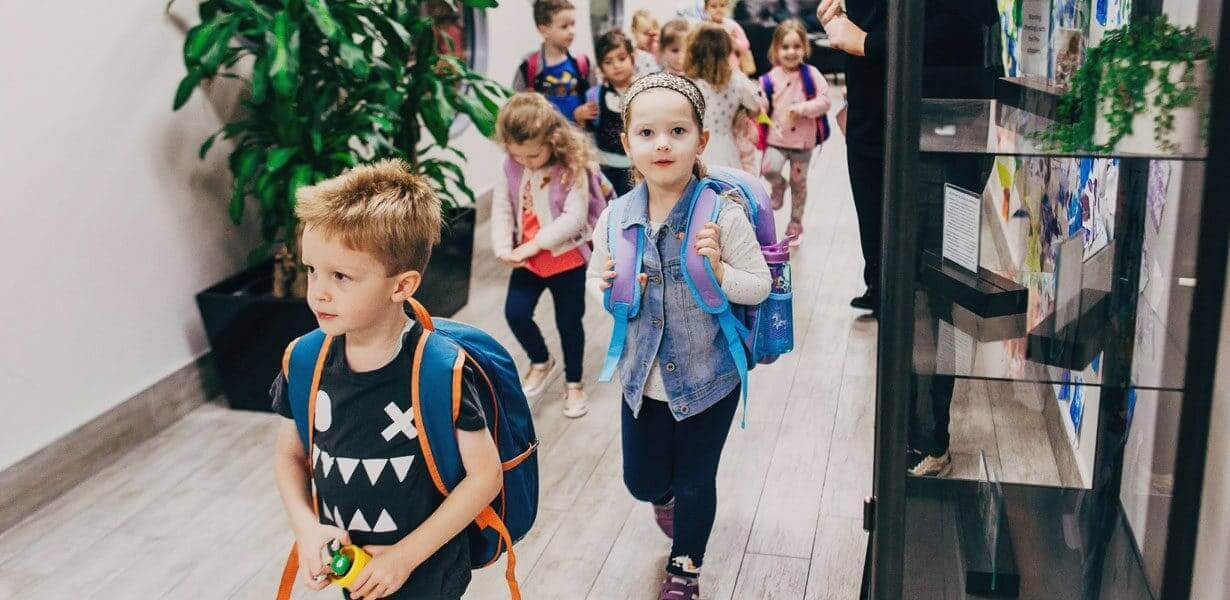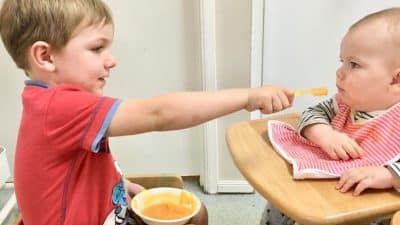Making a Smooth Transition to ‘Big’ School

The transition to school can be a huge adjustment for both children and their families. They must make a huge leap to meet people’s expectations of them and these demands can be stressful. On top of their new responsibilities, everything else is also different; larger buildings, more crowded classrooms, and a new vulnerability as the smallest person in the playground. At the same time, there are fewer adults around and different routines to fit into.
Because every child is different – some cope well and make an easy transition to school, while others require a lot more assistance and close care from both families and teachers – the concept of school readiness means expanding the stalwart skills of play, language, physicality, coordination, emotional development, concentration and independence. Let’s look deeper into these ‘school-ready’ skills.
At Guardian, we believe that children prepare for school (and their future) from day one – not just six months out from formal schooling. Therefore our programming and experiences are tailored to not only interest the child, but to help prepare them for a lifetime of learning.
Related article: School Transition and Contemporary Early Learning
Language
Good communication is the cornerstone of learning. To grow at school, a child needs to effectively follow direction and competently comprehend what their teacher says. Perhaps even more importantly, they also need to connect with other students using their evolving language skills.
Physicality
Children need to be physically confident as they learn to carry themselves and grow their self-assurance. If a child has a disability or chronic illness, this may need to be considered when assessing their school-readiness. If they’re going to struggle with school in some ways, these difficulties don’t necessarily mean they’re not prepared for school, but must be flagged.
Coordination
By mastering coordination, a child can be more autonomous. Using this skill, they can dress themselves, handle their lunch, open packets, accurately control pencils and scissors as well as take part in playground games.
Emotional
Among the most important school-ready skills, children will navigate their first year at school a lot more successfully if they can socialise and play with their fellow pupils. Finding out about themselves is a natural offset of interaction and a strong emotional base will buoy confidence.
Concentration
Finding themselves within the context of formal learning demands formidable concentration skills. They will need to focus on what they’re doing, comply with directives, manage change and comprehend rules and regulations.
Independence
Being in a larger context means that children will need to make their way with much less adult supervision. School demands more autonomy which means they need to be able to act under their own steam like going to the toilet unaccompanied and knowing when they’re hot or cold.
Early Learning Benefits
To prepare for ‘big school,’ early learning is very valuable. Sending your child to an early learning centre more than two days per week can counteract any skills deficits by providing a ‘practise’ environment where children can bolster their basic skills in an education environment. To keep from being ‘behind,’ it’s best to start school with foundation skills in place, rather than scrambling to be school-ready once school’s begun.
Looking for the right Childcare Centre for your Family?
Submit your details and a member of our Concierge Team will be in touch to discuss what you need and how we can help you experience something more than childcare.
We'll be in touch soon.






